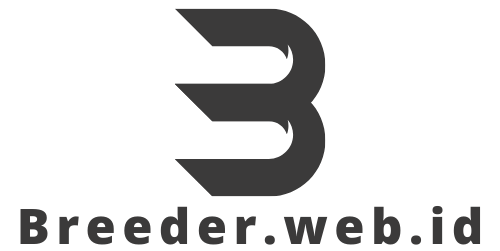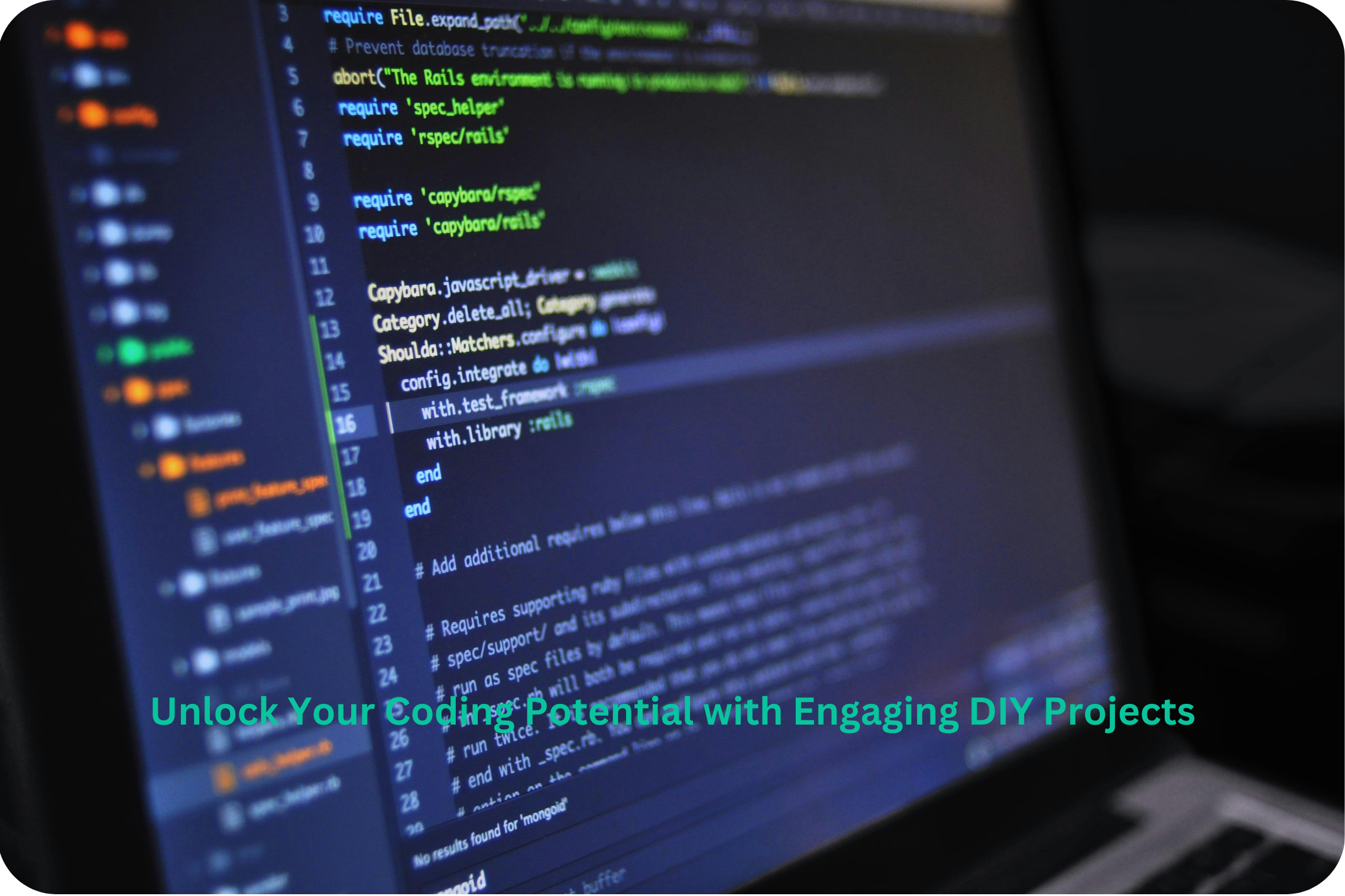Are you ready to take your coding skills to the next level? Look no further! In this article, we will unveil a treasure trove of DIY coding projects that will not only enhance your programming abilities but also provide a fun and engaging way to learn. Whether you’re a beginner looking to dip your toes into the world of coding or an experienced developer searching for new challenges, these hands-on projects will keep you hooked! So, roll up your sleeves and get ready to embark on an exciting coding journey!
Exploring the World of DIY Coding Projects
Are you tired of the traditional ways of learning to code? DIY coding projects offer a refreshing and exciting alternative. These projects not only allow you to apply your coding knowledge but also enable you to explore new concepts and technologies in a hands-on manner.
So, let’s dive into the wonderful world of DIY coding projects and discover how they can benefit you:
1. Enhance Your Problem-Solving Skills
One of the greatest advantages of DIY coding projects is that they sharpen your problem-solving skills. As you work on real-life coding challenges, you will encounter obstacles and roadblocks that require creative thinking and logical reasoning to overcome. This process of troubleshooting and finding solutions will help you develop a critical mindset, which is essential for any successful programmer.
2. Expand Your Knowledge Base
DIY coding projects provide an excellent opportunity to explore new programming languages, frameworks, and technologies. By experimenting with different projects, you can broaden your understanding and gain expertise in various areas. Whether it’s building a website from scratch or creating a mobile app, each project will expose you to different tools and techniques, expanding your knowledge base along the way.
3. Foster Creativity and Innovation
Coding projects often require you to think outside the box and come up with unique solutions. This fosters creativity and innovation, allowing you to approach problems from different angles and discover novel ways to achieve your desired outcomes. Through DIY projects, you can unleash your creative potential and develop a knack for finding elegant and efficient solutions to coding challenges.
4. Gain Practical Experience
Theoretical knowledge is important, but nothing beats hands-on experience. DIY coding projects provide a practical environment where you can apply the concepts you’ve learned and gain valuable experience. By working on real projects, you’ll encounter real-world scenarios, encounter bugs, and learn to debug and optimize your code. This practical experience will not only make you a better programmer but also give you a competitive edge in the job market.
So, why wait? Start exploring the world of DIY coding projects today and embark on an exciting journey of growth and learning!
Choosing the Right DIY Coding Project for You
With a vast array of DIY coding projects available, it’s essential to choose the right project that aligns with your interests and goals. Here are some factors to consider when selecting your next coding endeavor:
1. Skill Level and Experience
Consider your current skill level and experience in coding. If you’re a beginner, start with projects that offer step-by-step guidance and provide ample learning resources. Intermediate coders can opt for projects that push their boundaries and introduce new concepts, while advanced programmers might seek complex projects that challenge their expertise.
2. Interests and Passions
Choose a coding project that aligns with your interests and passions. If you enjoy web development, consider building a personal website or creating a blog from scratch. If you’re interested in data analysis, try your hand at developing a program that analyzes and visualizes data. By working on projects that excite you, you’ll stay motivated and engaged throughout the process.
3. Learning Goals
Identify your learning goals and what you wish to achieve through the project. Are you looking to gain proficiency in a specific programming language or framework? Do you want to delve into artificial intelligence or machine learning? By setting clear learning objectives, you can select projects that cater to your aspirations and help you progress in your coding journey.
4. Available Resources
Consider the availability of resources and support for your chosen project. Look for projects that have comprehensive documentation, tutorials, and online communities where you can seek guidance and assistance. Having access to these resources will enhance your learning experience and make your coding project much more enjoyable.
By considering these factors, you can choose a DIY coding project that not only challenges you but also aligns with your interests and learning goals. Remember, the journey of coding is as important as the destination, so choose wisely and embark on a project that will bring you joy and fulfillment.
Tips for Successfully Completing DIY Coding Projects
Embarking on a DIY coding project is an exciting endeavor, but it can also be challenging. To ensure your success, here are some valuable tips to keep in mind:
1. Plan and Break Down the Project
Before diving into coding, take the time to plan your project and break it down into smaller, manageable tasks. This will help you stay organized and focused throughout the process. Create a timeline or a to-do list outlining the steps you need to take and the goals you want to achieve at each stage.
2. Start with Simple Projects
If you’re new to DIY coding projects, it’s best to start with simpler projects. This will allow you to grasp the basics and build your confidence before tackling more complex endeavors. As you gain experience and knowledge, you can gradually move on to more challenging projects.
3. Embrace Challenges and Problem-Solving
Remember that coding projects are meant to challenge you. Embrace the obstacles and problems that arise along the way as valuable learning opportunities. Instead of getting discouraged, approach challenges with a problem-solving mindset. Break down the problem, research possible solutions, and don’t hesitate to seek help from online forums or communities if needed.
4. Test and Debug Your Code
Testing and debugging are crucial steps in any coding project. Regularly test your code as you progress to identify and fix any errors or bugs. Use debugging tools and techniques to pinpoint the root causes of issues. Proper testing and debugging will ensure the functionality and reliability of your final product.
5. Document Your Journey
Throughout your coding project, make it a habit to document your progress, challenges faced, and solutions implemented. This documentation can serve as a reference for future projects and help others who may encounter similar problems. Additionally, it allows you to track your growth and reflect on your coding journey.
6. Celebrate Milestones and Accomplishments
As you reach milestones and accomplish goals within your DIY coding project, take the time to celebrate your achievements. Recognize the progress you’ve made and the new skills you’ve acquired. Celebrating these milestones will keep you motivated and inspired to continue tackling even more ambitious coding projects.
By following these tips, you’ll be well-equipped to tackle DIY coding projects with confidence and success. Remember, the key is to enjoy the process, embrace challenges, and never stop learning!
Benefits of DIY Coding Projects for Personal and Professional Growth
Engaging in DIY coding projects offers numerous benefits that extend beyond just honing your coding skills. Let’s explore how these projects can contribute to your personal and professional growth:
1. Continuous Learning and Skill Development
DIY coding projects provide a platform for continuous learning and skill development. By working on diverse projects, you’ll encounter new concepts, technologies, and coding techniques. This constant exposure to novel ideas and tools will broaden your skillset and keep you updated with the latest trends in the ever-evolving world of programming.
2. Building a Diverse Portfolio
Completing DIY coding projects allows you to build a diverse portfolio that showcases your abilities and versatility as a programmer. A well-crafted portfolio not only demonstrates your technical prowess but also highlights your problem-solving abilities, creativity, and dedication. This can greatly enhance your chances of securing internships, job opportunities, or freelance projects.
3. Boosting Confidence and Self-Efficacy
Successfully completing DIY coding projects provides a sense of accomplishment and boosts your confidence. Each project you conquer reinforces your belief in your abilities as a coder. This increased confidence spills over into other aspects of your life and empowers you to take on more challenging projects or pursue ambitious coding goals.
4. Networking and Collaboration Opportunities
Engaging in DIY coding projects opens up networking and collaboration opportunities. Online coding communities, forums, and social media platforms provide avenues to connect with like-minded individuals, learn from experienced coders, and collaborate on projects. Building relationships within the coding community can lead to mentorship, job referrals, and even potential partnerships.
5. Problem-Solving and Critical Thinking Skills
DIY coding projects are excellent for honing problem-solving and critical thinking skills. As you encounter coding challenges and obstacles, you’ll develop the ability to think analytically, break down complex problems into manageable parts, and devise effective solutions. These skills are not only valuable in the coding realm but also transferable to various aspects of life.
6. Fostering a Growth Mindset
Engaging in DIY coding projects fosters a growth mindset, which is essential for personal and professional growth. By constantly pushing your boundaries, tackling new projects, and embracing challenges, you develop resilience and adaptability. Embracing a growth mindset allows you to view failures as opportunities for learning and fuels your motivation to continuously improve.
In conclusion, DIY coding projects offer far-reaching benefits, including continuous learning, portfolio development, increased confidence, networking opportunities, enhanced problem-solving skills, and the cultivation of a growth mindset. So, dive into the world of DIY coding projects and unlock your full potential as a programmer!
Conclusion: Embrace the DIY Coding Journey
DIY coding projects offer a world of opportunities for growth, learning, and personal fulfillment. Whether you’re a beginner or an experienced programmer, these projects provide a hands-on approach to enhance your coding skills and expand your knowledge.
Why Wait? Start Your DIY Coding Project Today!
With a plethora of projects available, it’s time to embark on your coding journey. Choose a project that aligns with your interests and goals, plan your approach, and dive in. Remember to embrace challenges, seek guidance when needed, and celebrate your achievements along the way.
The Rewards of DIY Coding Projects
Engaging in DIY coding projects not only enhances your technical abilities but also fosters critical thinking, problem-solving, and creativity. These projects provide a platform for continuous learning and skill development, enabling you to build a diverse portfolio and boost your confidence as a programmer.
Unlock Your Full Potential
By immersing yourself in the world of DIY coding projects, you open doors to networking opportunities, collaboration, and personal growth. Embrace the journey, nurture a growth mindset, and watch as your coding skills and capabilities flourish.
So, what are you waiting for? Choose your next DIY coding project, roll up your sleeves, and let your coding prowess shine. The world of endless possibilities awaits you!
In conclusion, DIY coding projects offer a fantastic opportunity to enhance your coding skills, expand your knowledge, and foster personal and professional growth. By engaging in hands-on projects, you can develop problem-solving abilities, boost your confidence, and build a diverse portfolio that showcases your expertise. These projects also provide networking and collaboration opportunities, allowing you to connect with like-minded individuals and learn from experienced coders. So, don’t hesitate to embark on your DIY coding journey today! Choose a project that excites you, plan your approach, and embrace the challenges and rewards that come with it. Remember, the key to success is continuous learning, perseverance, and a passion for coding. Happy coding!

